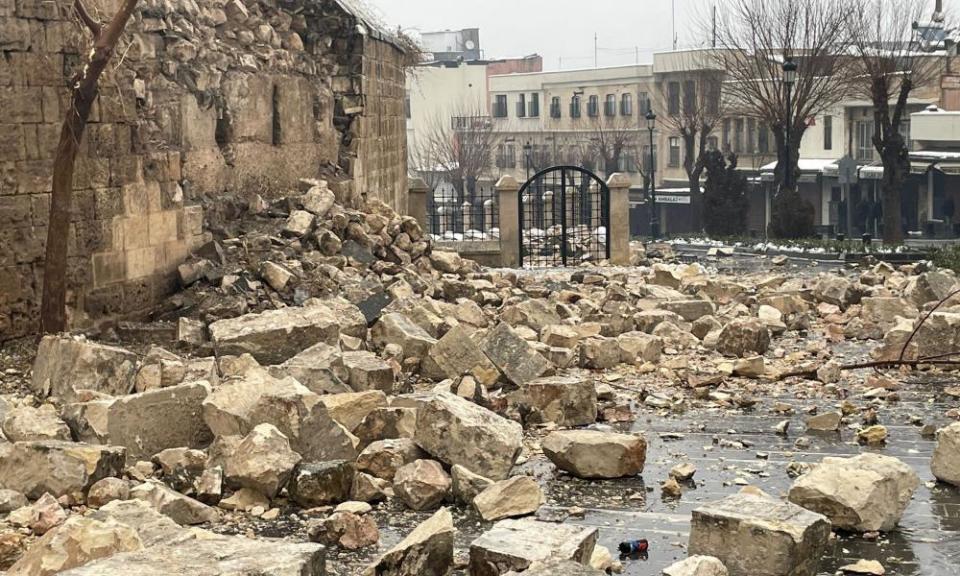Fears for ancient sites after earthquake destroys parts of Gaziantep Castle
The partial destruction of a Roman-era castle in the Turkish city of Gaziantep has led to fears that two earthquakes that struck on Monday may have damaged other priceless monuments in Turkey and Syria, areas rich in cultural heritage.
Photographs and footage of Gaziantep Castle, considered one of the best-preserved citadels in Turkey, showed parts of its stone walls had cascaded down the side of the fort.
Syria and Turkey are considered cradles of human civilisation and home to some of the world’s most precious relics of antiquity, boasting several Unesco world heritage sites, including the ancient city of Aleppo, already ravaged by the Syrian civil war.
Unverified reports on social media suggested that Monday’s earthquakes may have damaged the west gate to Aleppo’s old city.
Gaziantep Castle was shaken when a 7.8-magnitude quake hit nearby in the early morning on Monday. More than 1,300 people have been killed as buildings collapsed across Turkey and Syria, and a second, 7.7 quake struck in the middle of the day.
“Some of the bastions in the east, south and south-east parts of the historical Gaziantep Castle in the central Şahinbey district were destroyed by the earthquake; the debris was scattered on the road,” the Turkish state-run news agency Anadolu reported.

“The iron railings around the court were scattered on the surrounding sidewalks. The retaining wall next to the castle also collapsed. In some bastions, large cracks were observed after the earthquake,” it added.
Parts of the castle, located on high ground in the centre of modern-day Gaziantep, are believed to date back to the Hittite empire, but the main building was constructed by the Romans in the second and third centuries. It was later strengthened and expanded during the period of the Byzantine emperor Justinian I, who was called the “Architect of Castles”, according to Turkish Museums, a government-run website.
The dome and eastern wall of the historic Şirvani mosque, next to the castle, also partially collapsed during the quake, according to the Daily Sabah news website.

 Yahoo Movies
Yahoo Movies 